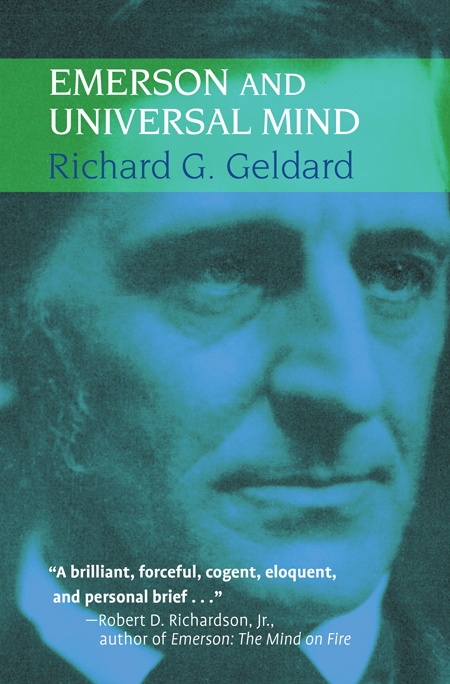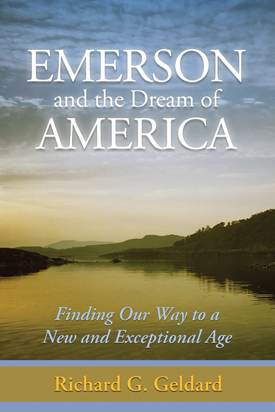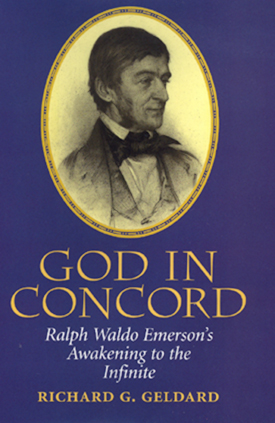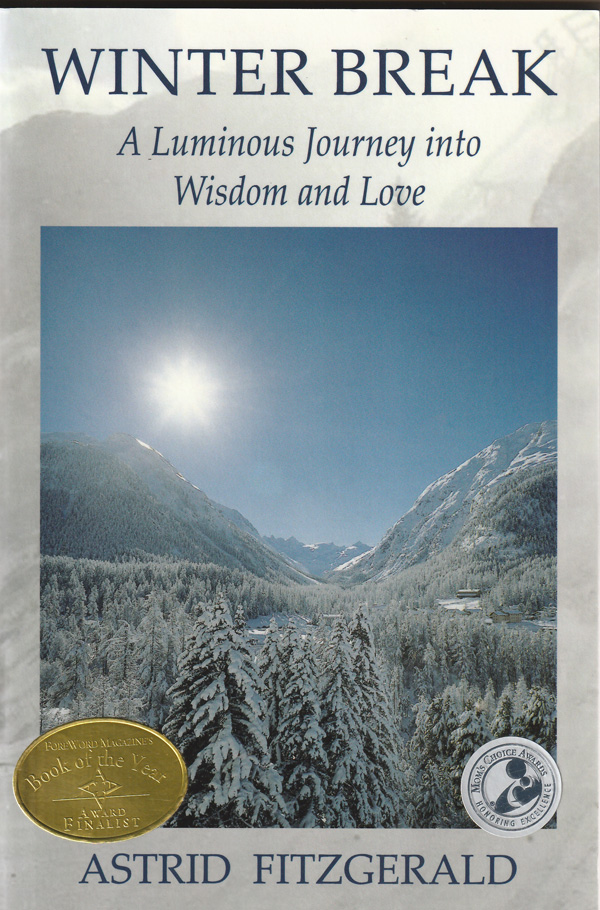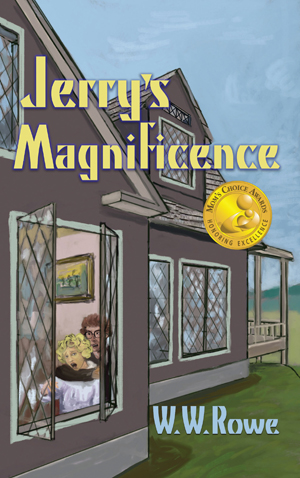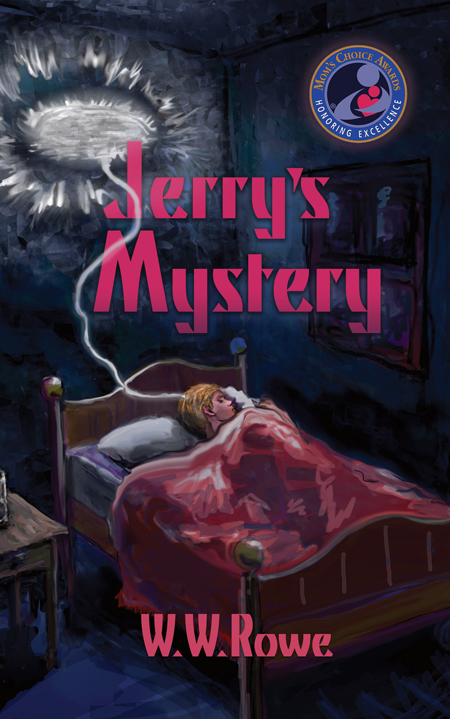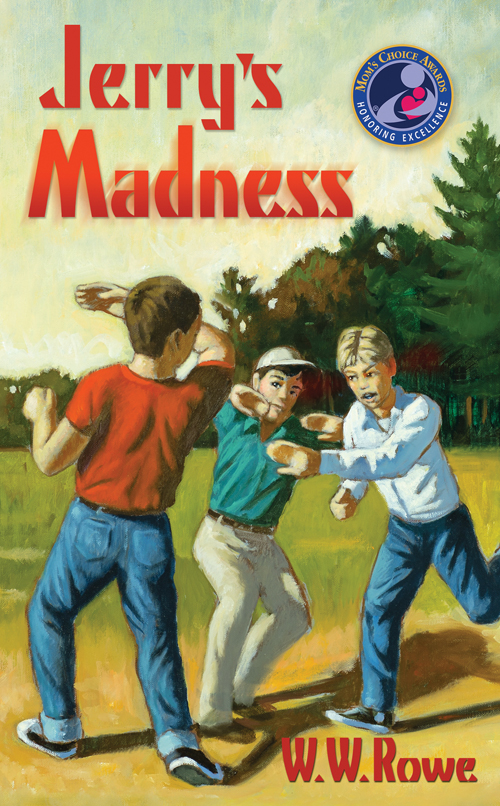The Magdalene Gates
A Novella By Richard Geldard

Retail/cover price: $14.00
Our price : $11.20
(You save $2.80!)
About this book:
The Magdalene Gates
A Novella
by Richard Geldard
A suspense-filled, mysteriously attractive story of love and spiritual awakening . . .
Subjects: Fiction, Religion, Religion, Women's Spirituality
6 x 9, paperback
148 pages
ISBN 10: 1-936012-90-1
ISBN 13: 978-1-936012-90-9
Book Details
“This is the book my soul has been thirsting for . . ." —Mirabai Starr
The Magdalene Gates is a suspense-filled love story and a spiritual mystery novella, set mainly in Athens, Ephesus (the resting place of Mary) and Crete.
Mysteriously attractive, it centers on Maia and Tonio’s discovery of long-buried Magdalene letters—threads in a teaching Jesus entrusted to Mary as the most advanced of his disciples. Intrigue surrounds this potentially earth-shaking discovery as a growing love brings spiritual awakening and new life to both characters.
Through his relationship with Maia and her contemporary family of seekers immersed in Mary Magdalene’s anti-institutional teachings, Tonio is initiated into a spiritual practice that leads toward spiritual maturity and enlightened consciousness through a series of Gates, or levels of development.
Maia Spiros is a highly intelligent, physically attractive, and spiritually compelling young woman—part of a colorful family of three generations devoted to profound but suppressed teachings that Mary Magdalene received as Jesus’s most intimate and most advanced disciple.
One day, guiding a group of students through the Theater of Dionysus in Athens, Greece, she sees a young man standing on the Acropolis wall above the theater, apparently immobilized by his vision of her. Somehow she knows: He is the person her mother’s dreams foresee, who will help them discover and translate important and long-missing letters of Magdalene that a recent earthquake has made findable.
She welcomes the American grad student’s awkward advances, with uncanny certainty that her mother’s dreams will again prove accurate, as they always do. But she and Tonio must hurry. And Maia knows she may not survive . . .
Their story that follows, the teachings it is grounded in, and the several other interesting characters who help unfold this mysteriously attractive novella carry
-
• a positive, hopeful message
• a refreshing look to humanity’s possible future in our confusing and often dark time
• a transformed image of the New Testament feminine and of how Jesus empowered women
• a glimpse of opening to a new way of viewing and being in the world
“This is the book my soul has been thirsting for. Ever since I encountered the fragmented, mysterious and luminous Gospel of Mary, I have yearned for those missing pages to turn up. In The Magdalene Gates, esoteric scholar Richard G. Geldard masterfully fills in the blanks, weaving his own potent understanding of Mary Magdalene’s wisdom teachings with a gripping mystery and a moving love story. The result is a novel I couldn’t put down, and which has somehow fundamentally changed me. Highly recommended.” —Mirabai Starr, author of Wild Mercy: Living the Fierce and Tender Mercy of the Women Mystics and translator of Dark Night of the Soul: John of the Cross
The Magdalene Gates is essential reading for difficult times. Geldard’s characters, in their simplicity and commitment to a spiritual and meaningful life of communitas, signal a path away from the greed, loneliness, and meaninglessness that limits the life of so many in the world and offers a series of gates to a fuller way of living and knowing Source. —Joey Madea, screenwriter/author
"Ever since a fragment of The Gospel of Mary was discovered in the Nag Hammadi Scrolls, spiritual pilgrims have longed for more definitive knowledge of Mary Magdalene. Although many Biblical scholars consign her to the position of repentant prostitute, more enlightened interpreters of the scriptures are debunking that history. Whatever the truth of her life, she continues to arouse the imagination. Oftentimes it is in fiction where truth is uncovered. Here, in this well-written novella, scholar Richard G. Geldard, Ph.D., takes us on a provocative and inspiring adventure that brings alive the incandescent teachings of Jesus’ most revered disciple, Mary Magdalene." —Justine Willis Toms, co-founder/host of New Dimensions Radio and author Small Pleasures: Finding Grace in a Chaotic World
“Set in Greece, against an authentic historical, philosophical and religious backdrop, Geldard weaves a tantalizing tale of love, mystery and spiritual awakening that probes ancient Christian scrolls to synthesize the wisdom traditions of East and West. Particularly inspiring is the spiritual development of the young hero Tonio who abandons a conventional academic career to follow his beloved, and wise, Maia into an uncommon life of service to a world in need of spiritual reformation and healing. A well-crafted novella of power and emotional depth.” —Lyla Yastion, author of Pause Now: Handbook for a Spiritual Revolution and Homesick: Finding Our Way Back to a Healthy Planet
1) 5-star Goodreads review by screenwriter/author/dramatist Joey Madia
Over the years I have reviewed many books from Larson Publications, including those they publish on behalf of the Paul Brunton Foundation. I have never been disappointed. This publisher has an eye for quality narratives grounded in scholarship and a crucial spiritual insight, and their books are a balm for a sorely troubled world.
Having long been a student of the Gnostic Gospels (e.g., Thomas, Phillip, and Mary), the gospels of the Essenes, and other esoteric documents from the early centuries of Christianity, as well as the true nature of Jesus and those who knew him best, The Magdalene Gates was a book I was keen to read. It takes as its central plot device the uncovering of scrolls from a dig site in Turkey—scrolls that put Mary Magdalene center stage in Jesus’s life and offer spiritual guidance to both the book’s characters and well as the reader.
Mary Magdalene is one of the most contested, misrepresented, and misunderstood characters in the Bible. Many know her only through what they’ve learned from Andrew Lloyd Webber’s Jesus Christ Superstar and the song “Alabaster Box” sung by CeCe Winans. In the Church’s schema of Jesus’s life, Mary Magdalene is the whore side of the Madonna/whore dichotomy completed by Mary Mater.
The problem is, there is no evidence at all of her being a whore. Perhaps she is Mary of Bethany, the sister of Lazarus. This would be of crucial importance, as I subscribe to the belief that Lazarus’s “death” was metaphorical and the culmination of his training/induction ritual into the Essenes.
So his sister would be an important figure indeed. Perhaps even Jesus’s wife, another theory to which I subscribe.
Certainly she is, in the Gospel of John, the “Beloved.” Scripture gives us clues that Mary was one of the most important (if not the most) of Jesus’s inner circle of confidants and disciples.
So, her words are important to hear and understand.
The book opens with, in romantic comedy parlance, a “meet cute,” as an uninspired graduate student specializing in ancient Greek tombs named Tonio meets Maia, an educator, at the ruins of a Greek theatre.
The reader will immediately notice the author’s facility with all things Greek, from the landscape, to the architecture, to mythology, history, and theatre.
It brings to mind John Fowles’s The Magus, as well as William Azuski’s Travels in Elysium, for all their Mediterranean mystery and splendor.
Once Tonio and Maia come together, answering the call of adventure in the classic hero’s journey, they blossom into a couple through an Indiana Jones-style adventure and work together—along with an interesting array of secondary characters comprising a blend of Maia’s family and specialist scholars—to solve the clues in the newly found scrolls. There are rites of passages, secrets, setbacks, and through it all an underlying commentary on spiritual growth and authenticity.
The Magdelene Gates is structured and reads like other spiritual fables, such as The Alchemist by Paulo Coelho, Way of the Peaceful Warrior by Dan Millman, and The Twelfth Insight by James Redfield.
The chapters, labeled Gates One through Nine, parallel the Nine Gates found in the scrolls. Nine is a sacred and mystical number and Geldard goes the extra step of correlating his meta-story with the spiritual journey through the gates. This careful construction begs close and multiple reads.
As it often throws me off and takes me out of the narrative, I want to let the potential reader know that the book is written in present tense, like some fables, but this style of writing can potentially jar the reader out of the otherwise beautifully immersive world of the story after long periods of dialogue.
This admittedly subjective caveat aside, The Magdalene Gates is essential reading for difficult times. Geldard’s characters, in their simplicity and commitment to a spiritual and meaningful life of communitas, signal a path away from the greed, loneliness, and meaninglessness that limits the life of so many in the world and offers a series of gates to a fuller way of living and knowing Source.
2) 5 stars from Amazon Super-reviewer Daryl Anderson
A catalytic little book – a subtle lure to unexpected metaphysical explorations —November 7, 2019
I don’t like novellas, I generally disdain the Christian fairy-tales, I often find so-called “sacred wisdom” soporific, and I consider silly love stories, just . . . silly. So why am I giving this novella—of early Christian wisdom twined around a love story—five stars, and taking the time to write a review? Let me try to answer those questions here, and perhaps encourage you to give this gem from Larson Publications a read.
When I completed The Magdalene Gates, I was left with an itch urging me toward further metaphysical exploration I had never expected to undertake. I discovered a desire to look more deeply into the less-known foundational stories of the early Christian tradition: the so-called “gnostic” gospels, and that of Mary (Magdalene) in particular. The itch persists.
The book tells the tale of two young people seeking to find, and then struggling to interpret, the pieces of a puzzle which comprises the imagined missing sections of the gospel of Mary Magdalene. The actual fragmentary gospel first came to light in 1896 and to further scholarly scrutiny in the past half-century.
The story is, in part, an archaeological adventure—but it is no “Raiders of the Lost Ark.” It is a love story—but certainly no Titanic. It is an exposition upon sacred wisdom—but no “Upanishad.”
Yet each of these apparent shortcomings serves to tug the reader further into the book and then beyond its final page. It is a good enough tale of practical adventure and exploration to remind you of the mythic power of a worldly quest . . . and it’s also a readerly enticement to find out “what happens?” It is a spare but lovely enough romance to remind you that our powerful human attractions and connections are at the core of being human . . . and it’s also a lure to find out “does boy get girl?” It is a sometimes uneven explication of a postulated sacred wisdom (that of the discovered missing pieces of the fragmented gospel). But that unevenness will lead the thoughtful reader to an inner argument with the author and to fully engage their mutual metaphysics. These shortcomings propelled me through the book. Then I wanted to explore more. You may experience the same effect.
In an age where so many seek wisdom in the roots of ancient traditions, from Buddhism to Shamanism, it is odd and interesting how diligently most avoid meaningful study of the esoteric Christian tradition—accessible to a generation now since Nag Hammadi. Probably this comes in reaction to our cultures being held hostage to modern fundamentalisms which are gruesome amalgamations of dead bits stitched together by madmen. With Christianity, as much as the others we may gain wisdom by looking backward.
Consider this fragmentary question and answer from the actual gospel of Mary, which is structured as a dialogue between Mary and Jesus:
Q. “[T]ell us about matter. Will it survive or not?"
A. “All of nature with its forms and creatures exist together and are interwoven with each other. They will be resolved back, however, to their own proper origin, for the compositions of matter return to the original roots of their nature.”
Isn’t that something? Of course Christianity was eventually parasitized by many dark ways of enacting human culture. But if we could en-lighten bits like this, of what it looked like two millennia ago, those memetic parasites might be dislodged. And if we could try to imagine the contents of the missing fragments, as this book does, we would gain insights with which to build a sustainable 21st century metaphysics. That’s an itch worth scratching.
Visit the author's online companion and complementary resource at https://themagdalenegates.org. This participatory website provides helpful supplementary readings and descriptions of stages in our growth as human beings that parallel Tonio’s development in The Magdalene Gates book.
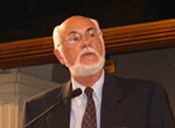
At Faneuil Hall, Boston, June, 2003
"Geldard's knowledge and understanding of Emerson is second to none, including the inimitable Harold Bloom." —Robert Lamb, New York Journal of Books
Richard Geldard is a full-time writer and lecturer living in New York City and the Hudson Valley. He is married to the artist and writer Astrid Fitzgerald.
Before turning to writing he was an educator, teaching English and philosophy at both the secondary, undergraduate and graduate levels. His most recent appointment was at the Pacifica Graduate Institute in Carpenteria, California, where he taught the Greek Mystery Religions. Prior to that he taught Greek Philosophy and The Science of Mind at Yeshiva College in New York, where he also supervised the General Studies program at the university’s boys' and girls' high schools.
He is a graduate of Bowdoin College, The Bread Loaf School of English at Middlebury College, and Stanford University, where he earned his doctorate in Dramatic Literature and Classics in 1972. He has also studied at St. John’s College, Oxford.
Geldard is the author of nine books, including studies of Ralph Waldo Emerson and Greek philosophy and culture. He is also a frequent lecturer. In June, 2003, and September, 2003, he was a featured speaker at Faneuil Hall in Boston as part of the Emerson Bicentennial Celebrations. In June, 2005, he was the Keynote speaker at the re-instatement of the Delphic Games in Delphi, Greece.
Dr. Geldard serves on three Boards of Directors: the Ralph Waldo Emerson Institute, the Friends of the Shawangunks and the World Sound Foundation.
Book Details
“This is the book my soul has been thirsting for . . ." —Mirabai Starr
The Magdalene Gates is a suspense-filled love story and a spiritual mystery novella, set mainly in Athens, Ephesus (the resting place of Mary) and Crete.
Mysteriously attractive, it centers on Maia and Tonio’s discovery of long-buried Magdalene letters—threads in a teaching Jesus entrusted to Mary as the most advanced of his disciples. Intrigue surrounds this potentially earth-shaking discovery as a growing love brings spiritual awakening and new life to both characters.
Through his relationship with Maia and her contemporary family of seekers immersed in Mary Magdalene’s anti-institutional teachings, Tonio is initiated into a spiritual practice that leads toward spiritual maturity and enlightened consciousness through a series of Gates, or levels of development.
Maia Spiros is a highly intelligent, physically attractive, and spiritually compelling young woman—part of a colorful family of three generations devoted to profound but suppressed teachings that Mary Magdalene received as Jesus’s most intimate and most advanced disciple.
One day, guiding a group of students through the Theater of Dionysus in Athens, Greece, she sees a young man standing on the Acropolis wall above the theater, apparently immobilized by his vision of her. Somehow she knows: He is the person her mother’s dreams foresee, who will help them discover and translate important and long-missing letters of Magdalene that a recent earthquake has made findable.
She welcomes the American grad student’s awkward advances, with uncanny certainty that her mother’s dreams will again prove accurate, as they always do. But she and Tonio must hurry. And Maia knows she may not survive . . .
Their story that follows, the teachings it is grounded in, and the several other interesting characters who help unfold this mysteriously attractive novella carry
-
• a positive, hopeful message
• a refreshing look to humanity’s possible future in our confusing and often dark time
• a transformed image of the New Testament feminine and of how Jesus empowered women
• a glimpse of opening to a new way of viewing and being in the world
“This is the book my soul has been thirsting for. Ever since I encountered the fragmented, mysterious and luminous Gospel of Mary, I have yearned for those missing pages to turn up. In The Magdalene Gates, esoteric scholar Richard G. Geldard masterfully fills in the blanks, weaving his own potent understanding of Mary Magdalene’s wisdom teachings with a gripping mystery and a moving love story. The result is a novel I couldn’t put down, and which has somehow fundamentally changed me. Highly recommended.” —Mirabai Starr, author of Wild Mercy: Living the Fierce and Tender Mercy of the Women Mystics and translator of Dark Night of the Soul: John of the Cross
The Magdalene Gates is essential reading for difficult times. Geldard’s characters, in their simplicity and commitment to a spiritual and meaningful life of communitas, signal a path away from the greed, loneliness, and meaninglessness that limits the life of so many in the world and offers a series of gates to a fuller way of living and knowing Source. —Joey Madea, screenwriter/author
"Ever since a fragment of The Gospel of Mary was discovered in the Nag Hammadi Scrolls, spiritual pilgrims have longed for more definitive knowledge of Mary Magdalene. Although many Biblical scholars consign her to the position of repentant prostitute, more enlightened interpreters of the scriptures are debunking that history. Whatever the truth of her life, she continues to arouse the imagination. Oftentimes it is in fiction where truth is uncovered. Here, in this well-written novella, scholar Richard G. Geldard, Ph.D., takes us on a provocative and inspiring adventure that brings alive the incandescent teachings of Jesus’ most revered disciple, Mary Magdalene." —Justine Willis Toms, co-founder/host of New Dimensions Radio and author Small Pleasures: Finding Grace in a Chaotic World
“Set in Greece, against an authentic historical, philosophical and religious backdrop, Geldard weaves a tantalizing tale of love, mystery and spiritual awakening that probes ancient Christian scrolls to synthesize the wisdom traditions of East and West. Particularly inspiring is the spiritual development of the young hero Tonio who abandons a conventional academic career to follow his beloved, and wise, Maia into an uncommon life of service to a world in need of spiritual reformation and healing. A well-crafted novella of power and emotional depth.” —Lyla Yastion, author of Pause Now: Handbook for a Spiritual Revolution and Homesick: Finding Our Way Back to a Healthy Planet
1) 5-star Goodreads review by screenwriter/author/dramatist Joey Madia
Over the years I have reviewed many books from Larson Publications, including those they publish on behalf of the Paul Brunton Foundation. I have never been disappointed. This publisher has an eye for quality narratives grounded in scholarship and a crucial spiritual insight, and their books are a balm for a sorely troubled world.
Having long been a student of the Gnostic Gospels (e.g., Thomas, Phillip, and Mary), the gospels of the Essenes, and other esoteric documents from the early centuries of Christianity, as well as the true nature of Jesus and those who knew him best, The Magdalene Gates was a book I was keen to read. It takes as its central plot device the uncovering of scrolls from a dig site in Turkey—scrolls that put Mary Magdalene center stage in Jesus’s life and offer spiritual guidance to both the book’s characters and well as the reader.
Mary Magdalene is one of the most contested, misrepresented, and misunderstood characters in the Bible. Many know her only through what they’ve learned from Andrew Lloyd Webber’s Jesus Christ Superstar and the song “Alabaster Box” sung by CeCe Winans. In the Church’s schema of Jesus’s life, Mary Magdalene is the whore side of the Madonna/whore dichotomy completed by Mary Mater.
The problem is, there is no evidence at all of her being a whore. Perhaps she is Mary of Bethany, the sister of Lazarus. This would be of crucial importance, as I subscribe to the belief that Lazarus’s “death” was metaphorical and the culmination of his training/induction ritual into the Essenes.
So his sister would be an important figure indeed. Perhaps even Jesus’s wife, another theory to which I subscribe.
Certainly she is, in the Gospel of John, the “Beloved.” Scripture gives us clues that Mary was one of the most important (if not the most) of Jesus’s inner circle of confidants and disciples.
So, her words are important to hear and understand.
The book opens with, in romantic comedy parlance, a “meet cute,” as an uninspired graduate student specializing in ancient Greek tombs named Tonio meets Maia, an educator, at the ruins of a Greek theatre.
The reader will immediately notice the author’s facility with all things Greek, from the landscape, to the architecture, to mythology, history, and theatre.
It brings to mind John Fowles’s The Magus, as well as William Azuski’s Travels in Elysium, for all their Mediterranean mystery and splendor.
Once Tonio and Maia come together, answering the call of adventure in the classic hero’s journey, they blossom into a couple through an Indiana Jones-style adventure and work together—along with an interesting array of secondary characters comprising a blend of Maia’s family and specialist scholars—to solve the clues in the newly found scrolls. There are rites of passages, secrets, setbacks, and through it all an underlying commentary on spiritual growth and authenticity.
The Magdelene Gates is structured and reads like other spiritual fables, such as The Alchemist by Paulo Coelho, Way of the Peaceful Warrior by Dan Millman, and The Twelfth Insight by James Redfield.
The chapters, labeled Gates One through Nine, parallel the Nine Gates found in the scrolls. Nine is a sacred and mystical number and Geldard goes the extra step of correlating his meta-story with the spiritual journey through the gates. This careful construction begs close and multiple reads.
As it often throws me off and takes me out of the narrative, I want to let the potential reader know that the book is written in present tense, like some fables, but this style of writing can potentially jar the reader out of the otherwise beautifully immersive world of the story after long periods of dialogue.
This admittedly subjective caveat aside, The Magdalene Gates is essential reading for difficult times. Geldard’s characters, in their simplicity and commitment to a spiritual and meaningful life of communitas, signal a path away from the greed, loneliness, and meaninglessness that limits the life of so many in the world and offers a series of gates to a fuller way of living and knowing Source.
2) 5 stars from Amazon Super-reviewer Daryl Anderson
A catalytic little book – a subtle lure to unexpected metaphysical explorations —November 7, 2019
I don’t like novellas, I generally disdain the Christian fairy-tales, I often find so-called “sacred wisdom” soporific, and I consider silly love stories, just . . . silly. So why am I giving this novella—of early Christian wisdom twined around a love story—five stars, and taking the time to write a review? Let me try to answer those questions here, and perhaps encourage you to give this gem from Larson Publications a read.
When I completed The Magdalene Gates, I was left with an itch urging me toward further metaphysical exploration I had never expected to undertake. I discovered a desire to look more deeply into the less-known foundational stories of the early Christian tradition: the so-called “gnostic” gospels, and that of Mary (Magdalene) in particular. The itch persists.
The book tells the tale of two young people seeking to find, and then struggling to interpret, the pieces of a puzzle which comprises the imagined missing sections of the gospel of Mary Magdalene. The actual fragmentary gospel first came to light in 1896 and to further scholarly scrutiny in the past half-century.
The story is, in part, an archaeological adventure—but it is no “Raiders of the Lost Ark.” It is a love story—but certainly no Titanic. It is an exposition upon sacred wisdom—but no “Upanishad.”
Yet each of these apparent shortcomings serves to tug the reader further into the book and then beyond its final page. It is a good enough tale of practical adventure and exploration to remind you of the mythic power of a worldly quest . . . and it’s also a readerly enticement to find out “what happens?” It is a spare but lovely enough romance to remind you that our powerful human attractions and connections are at the core of being human . . . and it’s also a lure to find out “does boy get girl?” It is a sometimes uneven explication of a postulated sacred wisdom (that of the discovered missing pieces of the fragmented gospel). But that unevenness will lead the thoughtful reader to an inner argument with the author and to fully engage their mutual metaphysics. These shortcomings propelled me through the book. Then I wanted to explore more. You may experience the same effect.
In an age where so many seek wisdom in the roots of ancient traditions, from Buddhism to Shamanism, it is odd and interesting how diligently most avoid meaningful study of the esoteric Christian tradition—accessible to a generation now since Nag Hammadi. Probably this comes in reaction to our cultures being held hostage to modern fundamentalisms which are gruesome amalgamations of dead bits stitched together by madmen. With Christianity, as much as the others we may gain wisdom by looking backward.
Consider this fragmentary question and answer from the actual gospel of Mary, which is structured as a dialogue between Mary and Jesus:
Q. “[T]ell us about matter. Will it survive or not?"
A. “All of nature with its forms and creatures exist together and are interwoven with each other. They will be resolved back, however, to their own proper origin, for the compositions of matter return to the original roots of their nature.”
Isn’t that something? Of course Christianity was eventually parasitized by many dark ways of enacting human culture. But if we could en-lighten bits like this, of what it looked like two millennia ago, those memetic parasites might be dislodged. And if we could try to imagine the contents of the missing fragments, as this book does, we would gain insights with which to build a sustainable 21st century metaphysics. That’s an itch worth scratching.
Visit the author's online companion and complementary resource at https://themagdalenegates.org. This participatory website provides helpful supplementary readings and descriptions of stages in our growth as human beings that parallel Tonio’s development in The Magdalene Gates book.
About Richard Geldard

At Faneuil Hall, Boston, June, 2003
"Geldard's knowledge and understanding of Emerson is second to none, including the inimitable Harold Bloom." —Robert Lamb, New York Journal of Books
Richard Geldard is a full-time writer and lecturer living in New York City and the Hudson Valley. He is married to the artist and writer Astrid Fitzgerald.
Before turning to writing he was an educator, teaching English and philosophy at both the secondary, undergraduate and graduate levels. His most recent appointment was at the Pacifica Graduate Institute in Carpenteria, California, where he taught the Greek Mystery Religions. Prior to that he taught Greek Philosophy and The Science of Mind at Yeshiva College in New York, where he also supervised the General Studies program at the university’s boys' and girls' high schools.
He is a graduate of Bowdoin College, The Bread Loaf School of English at Middlebury College, and Stanford University, where he earned his doctorate in Dramatic Literature and Classics in 1972. He has also studied at St. John’s College, Oxford.
Geldard is the author of nine books, including studies of Ralph Waldo Emerson and Greek philosophy and culture. He is also a frequent lecturer. In June, 2003, and September, 2003, he was a featured speaker at Faneuil Hall in Boston as part of the Emerson Bicentennial Celebrations. In June, 2005, he was the Keynote speaker at the re-instatement of the Delphic Games in Delphi, Greece.
Dr. Geldard serves on three Boards of Directors: the Ralph Waldo Emerson Institute, the Friends of the Shawangunks and the World Sound Foundation.

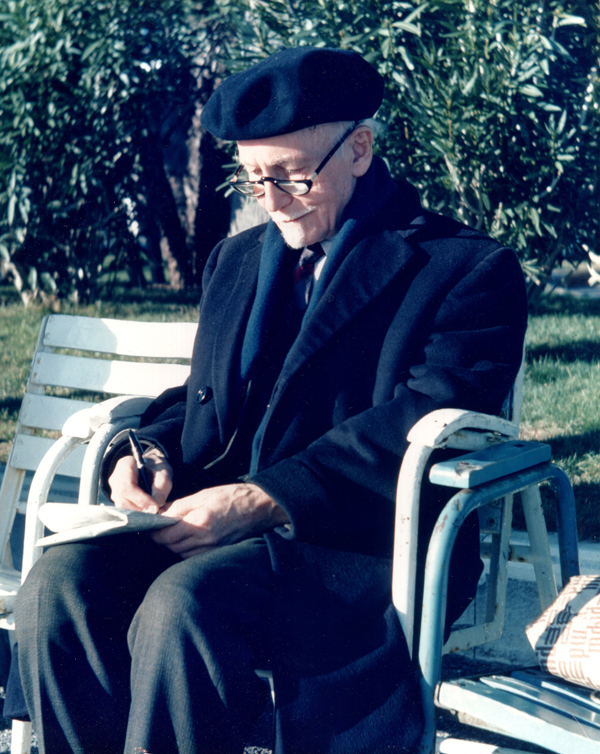
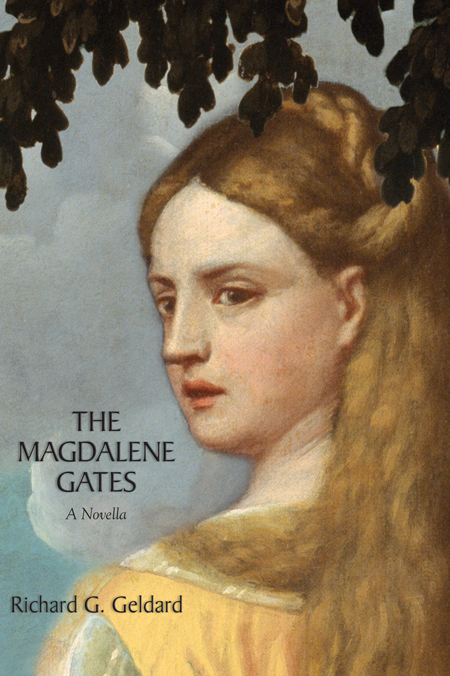
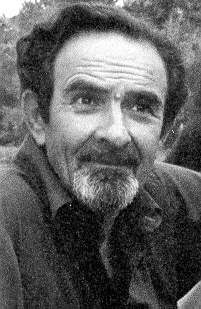

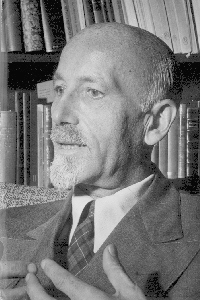
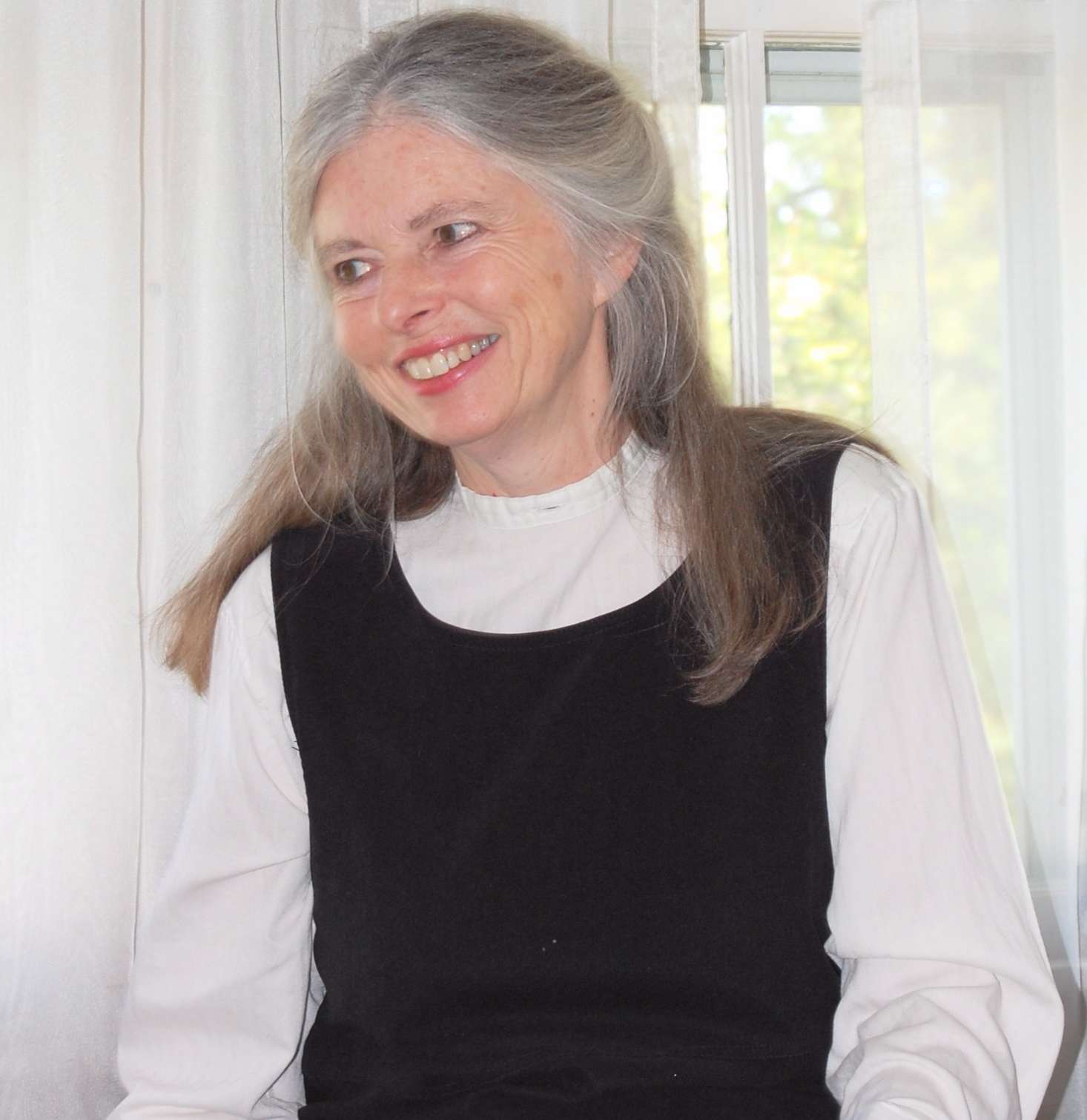
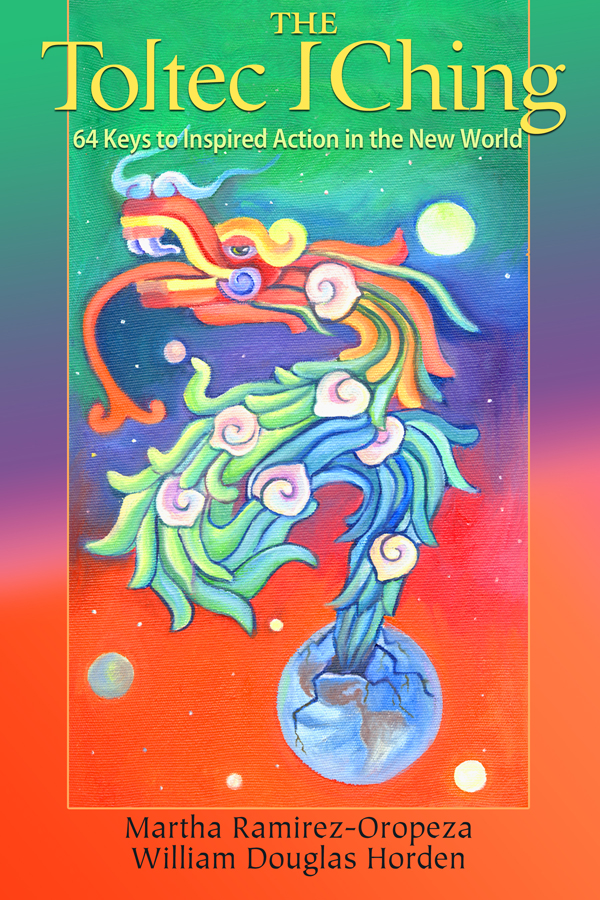
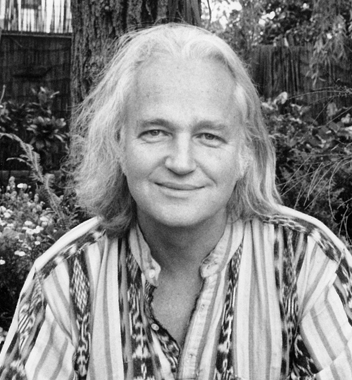
.jpg)
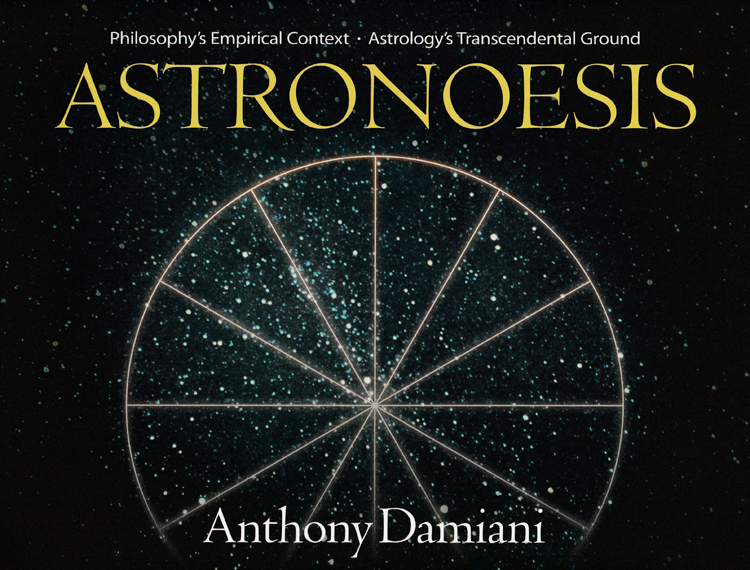
.jpg)
